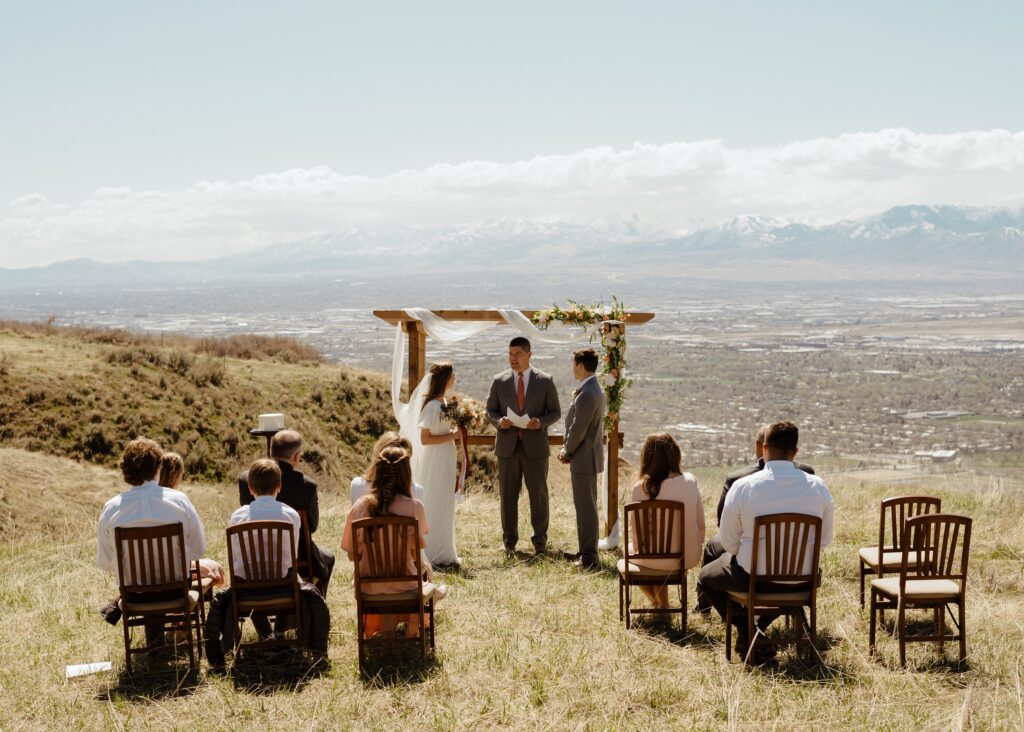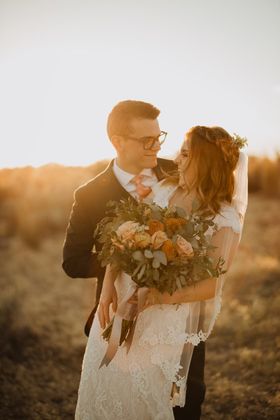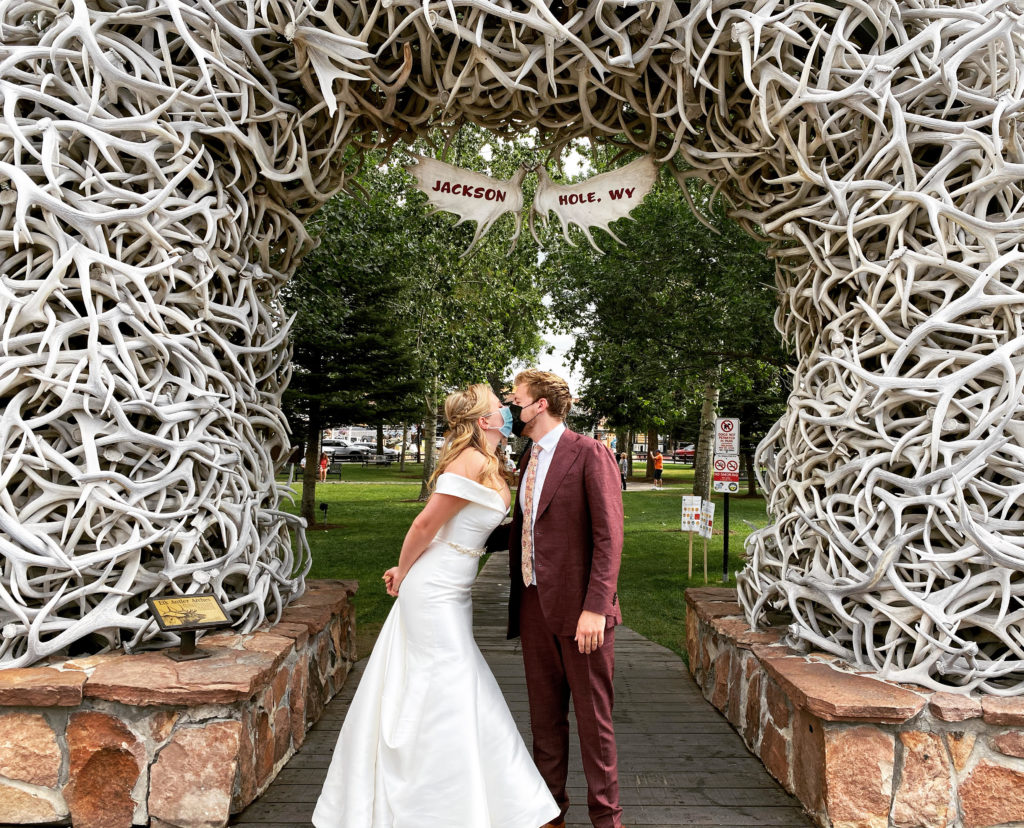When BYU students Maren Davis and her husband Matt got engaged in October, they had no idea what was coming.

Davis, once a wedding host at an event center in Salt Lake City, had been planning her dream spring wedding since high school. She had everything figured out, from the food to where they would stand – she called it a logistical masterpiece.
In early March, coronavirus cases were on the rise in the United States and in Utah, and the state began to shut down.
Davis said it was heartbreaking to watch everything they had planned get canceled. They had to start from ground zero all over again.
“I’m a planner, so having everything get unexpectedly canceled was like a nightmare,” Davis said. “Don’t get me wrong, I was still really excited to get married, but it was hard to keep that in perspective when everything was falling apart.”
Davis said that between February and April, she must have planned at least 10 different weddings.
Their saving grace was their photographer, who kept them informed of all the new updates, even letting them know when Utah County had shut down their offices so that the couple could get a marriage license in Salt Lake County before they shut down, too. Despite the help, the uncertainty was stressful.
“I remember after so much stress of trying to plan and replan, the earthquake hit and I just thought ‘the world is ending. I don’t even care about plans anymore, we’re getting married asap,’” Davis said.
In the end, the Davises moved their wedding up from the first of May to April 10 and had a small ceremony on the mountain with just them, their parents, siblings and the bishop to marry them.
Some friends and family came to support them, forming a lineup of cars from which they threw birdseed as the couple walked by. They are now inviting everyone to celebrate their marriage with a social-distancing responsible reception.
Emily Roberts Jones, another student of BYU, and her husband Dakota, student of UVU, also had to endure the craziness of trying to plan and replan a wedding during coronavirus. The Roberts Joneses got engaged on March 7, about a week before the state shut down.
At first, their original reception center assured them that their July wedding would be completely normal. However, the coronavirus situation didn’t improve.
Six weeks before the wedding, they were informed that their wedding party would have to be severely limited, which for them would’ve meant choosing which brothers could come to the wedding.

With all of the changes in numbers, catering and services, Roberts Jones had to consistently swap plans all the way up to the wedding day, but she made it through.
She found a venue with plenty of space inside and out to allow for social distancing, with workers consistently cleaning and guests wearing masks. She said one benefit of coronavirus was that the lack of school and work made it easier to completely focus on wedding planning without distractions.
“Honestly, I loved planning my wedding,” Roberts Jones said. “Rolling with the changes was difficult sometimes, but I usually tried to turn it around and make it into something positive.”
Though she at first felt cheated, and though some of her close relatives from Oklahoma were not able to make it, Roberts Jones still made the day into the wedding of her dreams.
For WSU student Mitchell Burke, and his wife, USU student Jaidin, the experience had some similarities. Engaged near the middle of April, they knew about coronavirus, but the news reports and CDC guidelines were all over the place and changed too much to know anything for certain.
“Our plans seemed to change on a daily basis and it felt like we had no control over anything that was going on,” Burke said.
Originally having planned a large celebration for their August wedding, the Burkes had to cancel their luncheon and only held a small reception for family and the wedding party, with a drive-by reception for everyone else.
Despite the unexpected challenges these couples faced, they all found silver linings in their situations. Burke said it was nice to tone down some of the big wedding traditions that he found excessive, and it saved them money. Davis found it special to enjoy a wedding without the restraints of social expectations.
“It wasn’t about the party or the honeymoon or even our family,” Davis said. “it was just about us getting married and starting a life together.”

These challenges also helped the couples grow closer together as they helped and supported each other.
“Honestly, after being married, things don’t really feel like they have changed much aside from being together more often,” Burke said. “We really were able to see how we both react during stressful situations out of our control, and I think that’s a major plus side to all of this.”
The unique circumstances made for unique experiences in an already unique year.
“Would I wish a COVID wedding on anyone? No. Was it perfect and special for what it was? Yes. I honestly wouldn’t have had it any other way,” Davis said. “It’s just added so much to our story.”



















